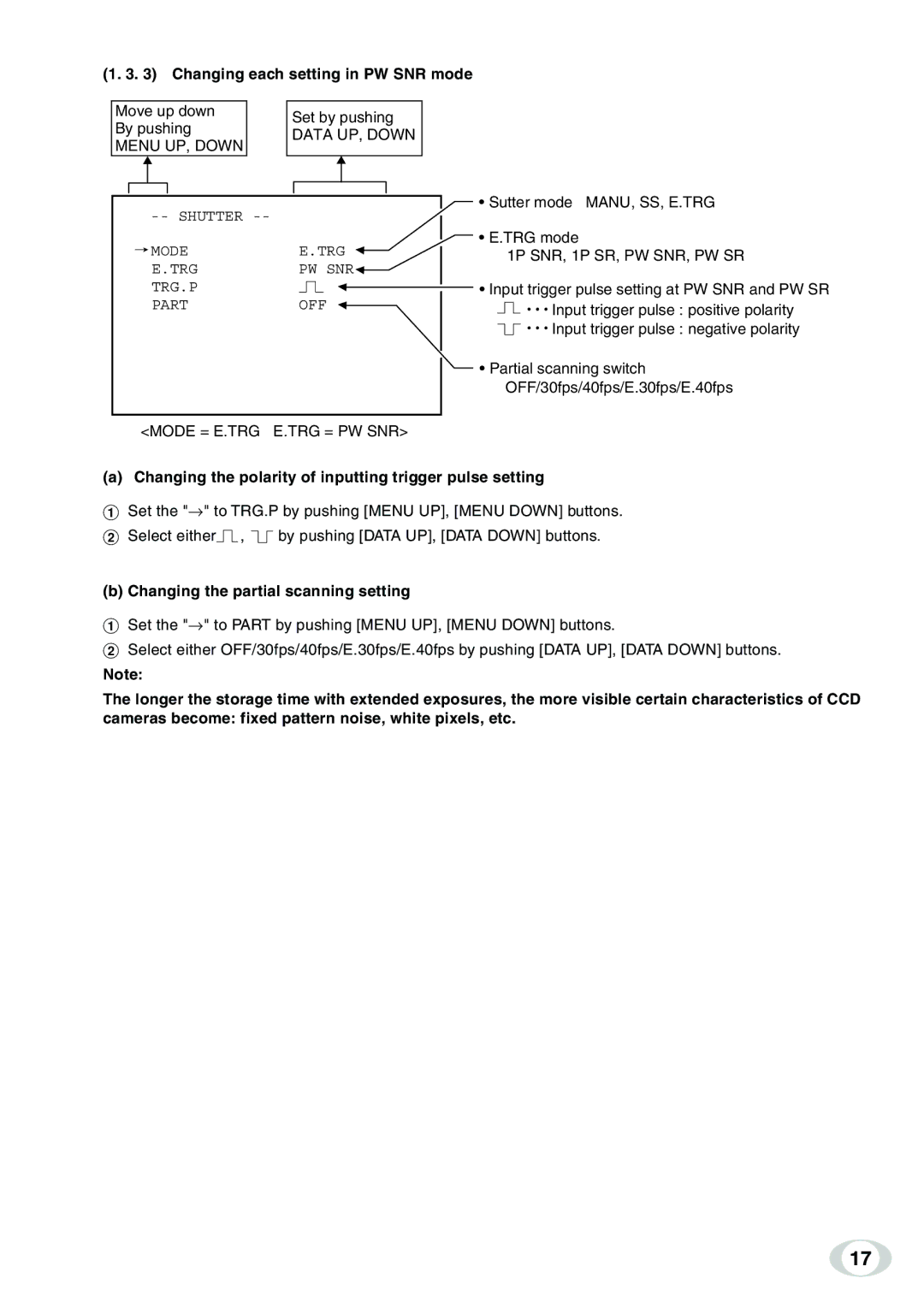IK-TF9C specifications
The Toshiba IK-TF9C is a state-of-the-art industrial camera designed to meet the demands of high-performance imaging in a variety of applications. With its advanced features and versatile capabilities, the IK-TF9C is perfect for use in fields such as manufacturing, robotics, and scientific research.One of the standout features of the IK-TF9C is its high-resolution imaging capabilities. The camera boasts a 1.3-megapixel resolution, ensuring that it can capture detailed images with clarity. This high resolution is coupled with a fast frame rate, allowing users to capture dynamic scenes without losing quality. The camera can operate at frame rates of up to 60 frames per second, making it ideal for capturing fast-moving objects or processes.
The IK-TF9C incorporates state-of-the-art CMOS sensor technology, which offers several advantages over traditional CCD sensors. The CMOS sensor provides increased sensitivity, allowing for better performance in low-light conditions. This makes the camera suitable for a wide range of environments, from bright factory floors to dimly lit research facilities. Additionally, CMOS sensors consume less power, contributing to the energy efficiency of the IK-TF9C.
Another key characteristic of the IK-TF9C is its compact and lightweight design. This feature allows for easy integration into existing systems and setups. The camera's small form factor does not compromise its durability; it is built to withstand the rigors of industrial use, including exposure to dust and vibrations.
The IK-TF9C also supports a variety of output formats, including USB and HDMI, facilitating seamless connectivity with other devices and systems. It is compatible with various image processing software, allowing users to utilize advanced image analysis techniques for their specific applications.
Furthermore, the camera supports multiple image capture modes, including still capture and video recording, providing flexibility in how data can be collected and utilized. The temperature operating range of the IK-TF9C enhances its adaptability to different industrial environments, ensuring reliable performance under a variety of conditions.
In summary, the Toshiba IK-TF9C combines high-resolution imaging, advanced CMOS technology, and a robust design to create a versatile industrial camera. Its flexible connectivity options and multiple operating modes make it a suitable solution for various imaging tasks across many sectors, solidifying its position as a leading choice for professionals seeking high-quality imaging solutions.

